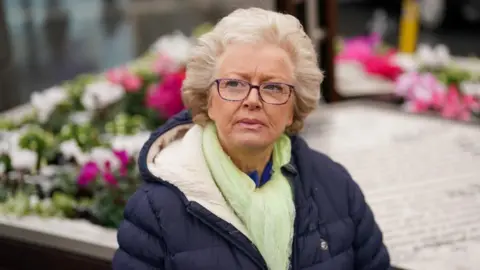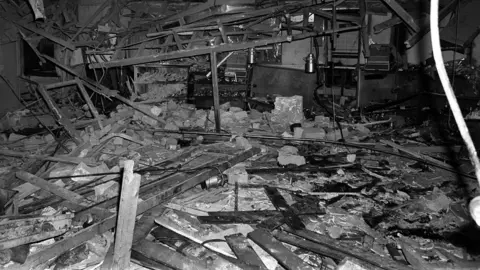Pub bombings answers 'no nearer despite repeal'
 PA Media
PA MediaThe sister of a woman killed in IRA bombings on Birmingham pubs has said she fears no one will ever learn the truth, despite the government beginning to repeal a law that offered anonymity for some suspects during the Troubles.
Twenty one people were killed and more than 200 injured in the city in 1974 in what remains Britain's biggest unsolved mass murder.
The Northern Ireland Secretary has begun the process of reversing the controversial Legacy Act, which also banned civil actions.
However, Julie Hambleton, whose sister Maxine died in the Birmingham bombings, fears families will never get the answers they deserve.
The secretary of state for Northern Ireland, Hilary Benn, said repealing the act would "correct the mistakes of the previous government", removing conditional immunity, reinstating legacy inquests, restoring civil cases and reforming the Independent Commission for Reconciliation and Information Recovery (ICRIR).
The commission has the power to investigate deaths and serious injuries related to the Troubles.
But concerns have been raised after the Court of Appeal found the government had too much veto power over what material investigators could release.
Despite the ruling, new legislation, that is yet to be drafted, could uphold the veto, on the basis that the government claim national security would otherwise be compromised.
Ms Hambleton said blocking bereaved families from accessing sensitive documents was like "rubbing salt in the wound".
"It's all to with controlling the narrative," she said.
 PA Media
PA Media"It doesn't matter that they're dismissing the [Legacy] act, as they're removing the very methods that families like ours are fighting to gain access to.
"The national security papers have pretty much all the answers to the questions we all desire."
Several victims' groups want the ICRIR to be scrapped and Lady Chief Justice of Northern Ireland Dame Siobhan Keegan warned, in her judgement in September, that public confidence in the body was at risk, due to the veto.
The government has said it will remain, but pledged to overhaul it.
Sir Declan Morgan, chief commissioner of the ICRIR, said it was "committed" to achieving the "unvarnished truth for all of the victims".
"The first duty that we have is to ensure that information that the government might want to prevent, which is embarrassing, and existing from something that requires to be preserved for national security, that information is disclosed and if it is not disclosed to call it out," he added.
Ms Hambleton, however, believes the repeal is an act of "window-dressing" that enables the government to continue to conceal key information.
"Whatever they decide to do, the doors will remain shut, locked and cemented if they decide to legislate."
Follow BBC Birmingham on BBC Sounds, Facebook, X and Instagram.
